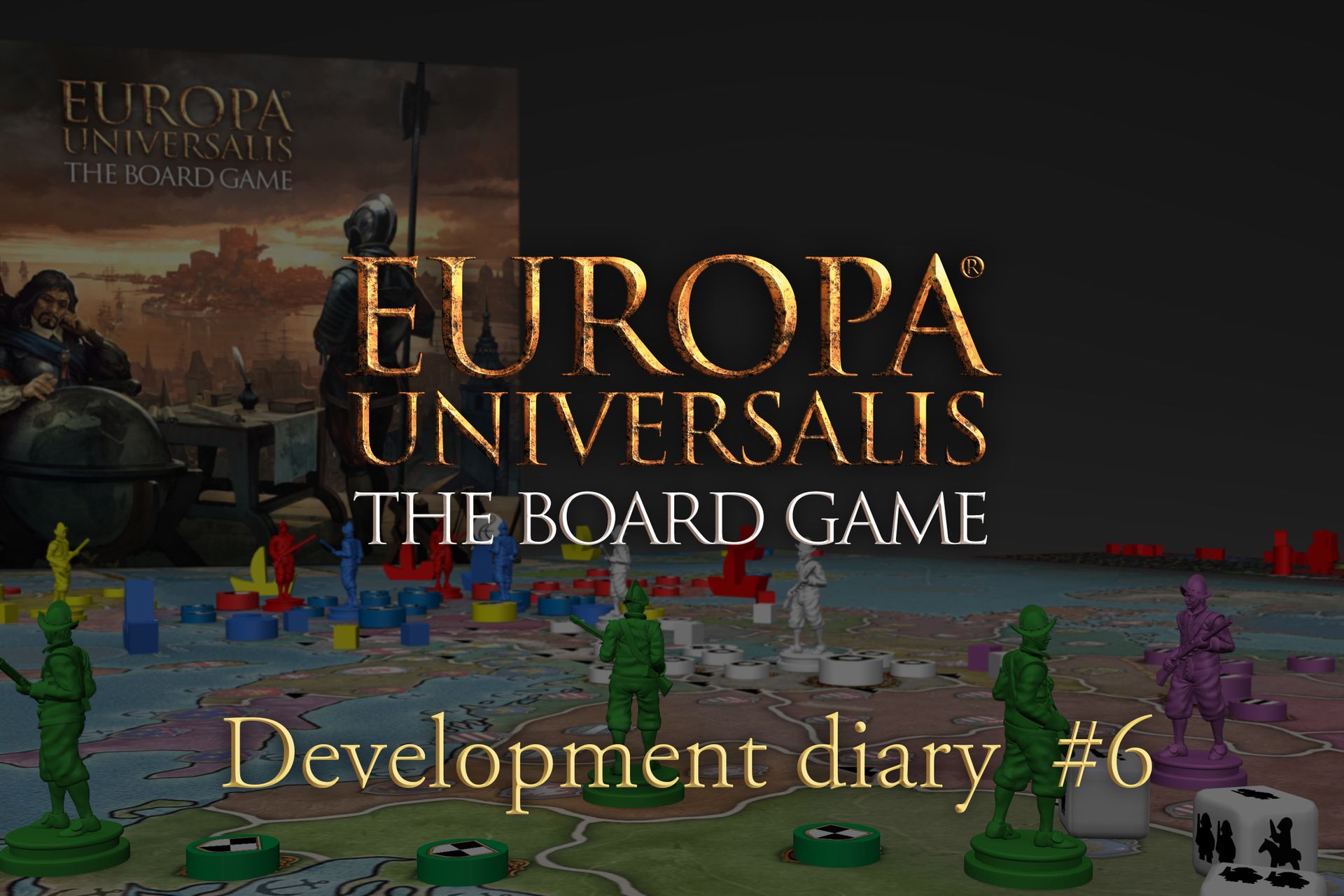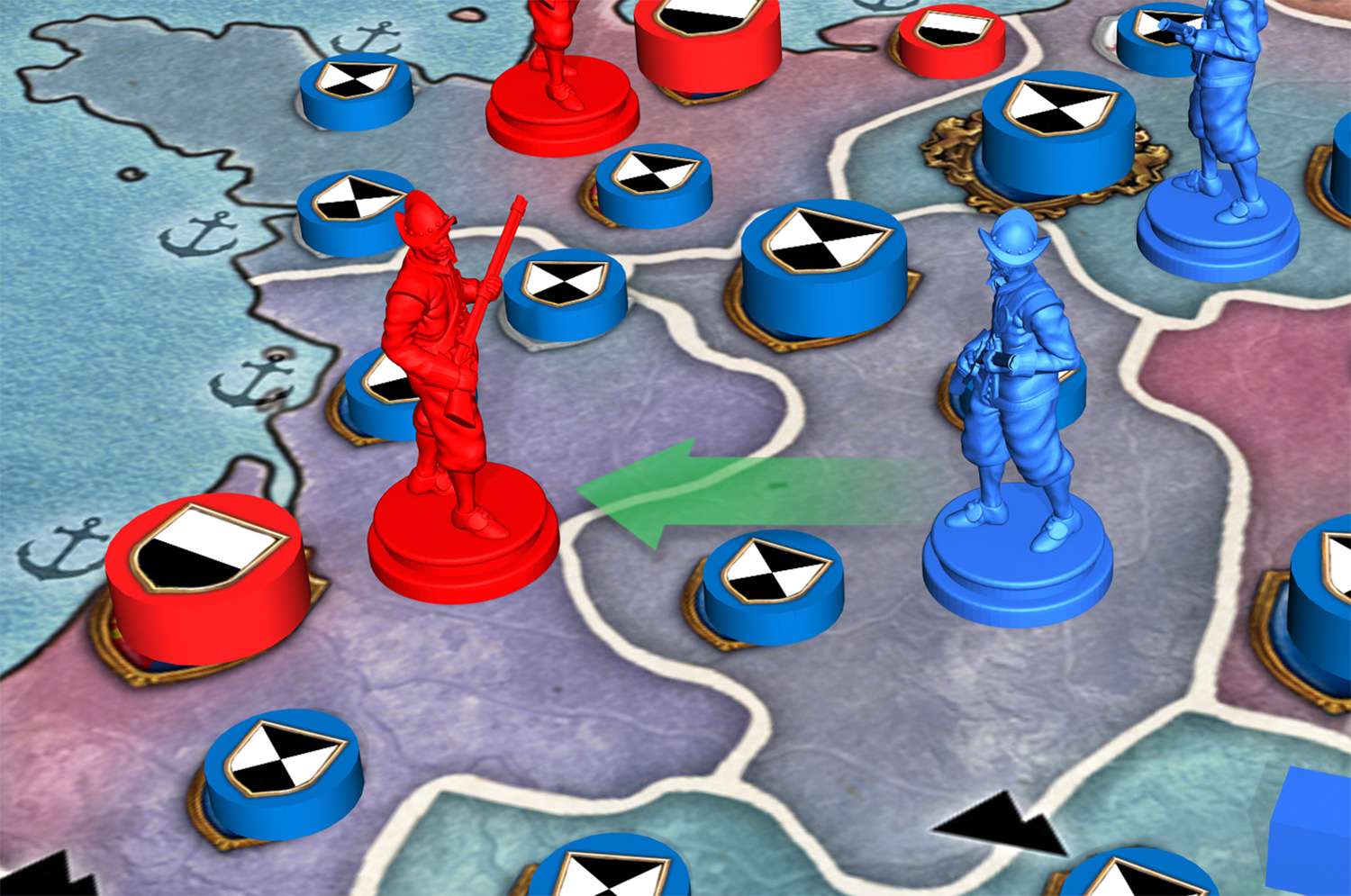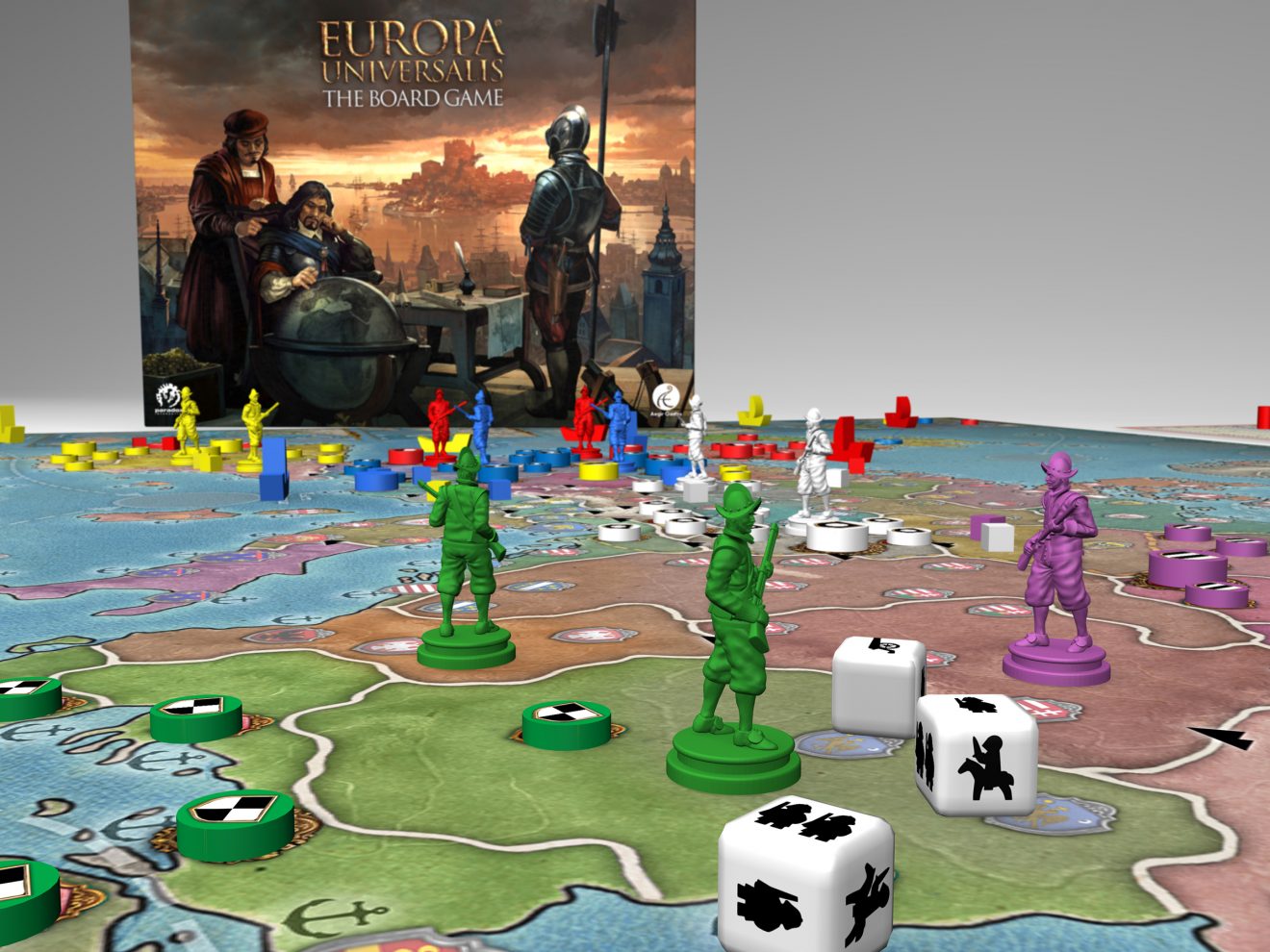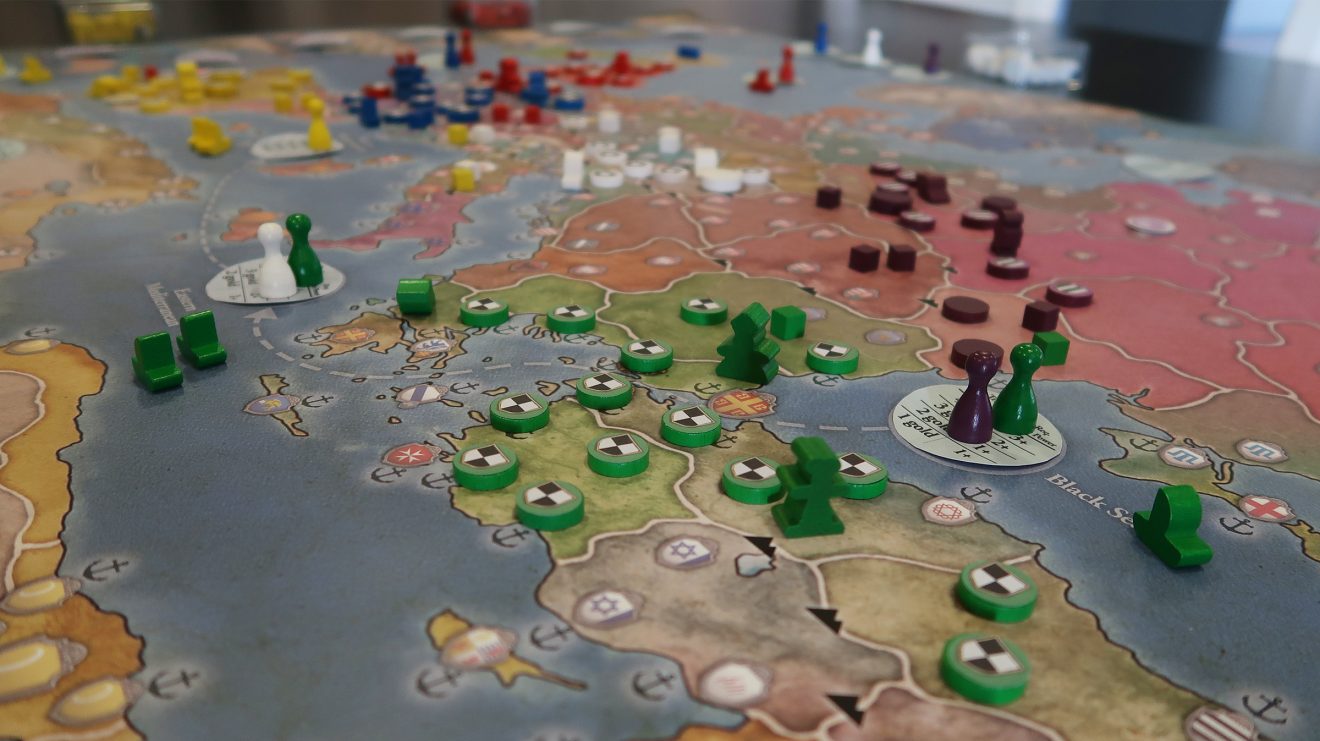
Today’s subject for the development diary, is one we think that many of you might have been waiting for, namely Warfare. While some players immediately try to conquer their way through the continent, others will stick to a more diplomatic approach. Either way, all players must be prepared for the possibility that their Realm will be involved in an armed conflict at some stage.
Preparing for War
If you see that neighboring Player Realms are gearing for War, it might be wise to prepare your own state for what might be coming. You could, of course, take diplomatic measures, by forging Alliances and making deals with other players, but eventually you will have to field a military force that can defend your lands. Gearing for War is costly, so make sure you set aside resources to pay for it. Taking a Recruit Action costs one Military Power (MP) token, and lets you recruit as many Military Units as you can afford to pay for with the Ducats in your Treasury. Regular Units are limited by the Manpower of your Realm. You may hire Mercenaries (orange color) on top of this. Recruited Units must be placed in your own Home Areas. Your Armies may consist of Infantry, Cavalry and Artillery Units.
When you are preparing to go on the offensive, and not simply defending yourself, you should make sure that you have a good reason to do so – a Casus Belli. In a War of Conquest a Casus Belli normally means having Claims on Provinces owned by the target Realm. You may use your Diplomatic Power to Fabricate these Claims as needed, if you haven’t already got them. When you have your Casus Belli, and you think that you are better prepared than your target, it is time to Declare War.
Warfare
You deploy your Military Units most efficiently by stationing them in one of your Armies. All Units in an Army may move as one. Each Army is represented by a miniature on the board, and has its own Army Mat off the map board, which may contain any number of Units. You move your Armies by spending one MP, and taking an Activate Army Action, enabling you to move one Army. An Army may move one space in hostile territories or two spaces in friendly territories, per activation. There are Action Cards that give attackers more flexibility, and cards that give defenders a chance to react.

Battles
When an Army moves into an Area with hostile Units, a Battle will ensue immediately. Both the attacker and the defender has a chance to play Action Cards to improve their odds. Having a General to command your Army is also very useful. As a basis, both sides roll 3 Infantry Dice. Then you add dice supplied by Action Cards and Generals.
You score hits by rolling symbols that match with Units in your Army. To score a hit for an Infantry result, you need an Infantry Unit, and likewise for Cavalry and Artillery. Each Unit may only inflict one hit on the opponent. In other words, you need to have the tactical advantage of a General or an Action Card, to efficiently make the most of having a large Army on the battlefield. If both sides have surviving Units after the first round of dice rolling, they may decide whether they want to retreat or continue fighting. You win the Battle if you defeat all of the enemy’s Units, or if they retreat.
Your casualties return to your Manpower Pool as exhausted Units. You must refresh your Exhausted Units to make them available again. Mercenaries are returned to the General Supply.
 Ottoman forces on the move in the Balkans. Infantry dice shown in the foreground.
Ottoman forces on the move in the Balkans. Infantry dice shown in the foreground.
Sieges
When you have won a Battle, you may Siege enemy Provinces in the Area on your next Turn. To Siege you must pay one MP per Province, and you need to have enough Units to match the Tax Value of the Provinces you wish to Siege. For each successful Siege you place a control token on the opponent’s Province.
Winning the War
They key to winning a War is, perhaps unsurprisingly, to beat your enemy’s Armies, and occupying as many of their Provinces as possible. If you manage to do this well enough, you will be able to enforce your demands when determining the terms of Peace. The rewards for winning a War will often be capturing Provinces from your enemy, but you may also make other demands, and score Victory Points. We will take a closer look at Peace Resolution in another Development Diary. Beware the weakening consequences of spending too many resources on a War. If you are too greedy, you might make yourself vulnerable to attacks from other players.
Major Power at a Glance: Ottomans
 The Ottomans have the potential to become a truly great military and naval power.
The Ottomans have the potential to become a truly great military and naval power.
Age I of the game starts just after the Battle of Varna, where the Ottomans defeated the Christian forces of Hungary, Poland and Wallachia. This means that the Ottomans have a fragile peace with their Christian neighbors at the outset. This peace is unlikely to last forever given the conflicting goals of the Ottoman, Austrian and Polish Missions.
If the Ottomans can capture Constantinople early on, and consolidate their power in Anatolia, they are very well positioned to expand their territories in Europe and the Middle East. Playing as the Ottomans you will most likely be at War more often than most other players. The Ottomans’ strength lie more in their military prowess than subtle diplomacy. Even so, an Alliance with France or any other power at odds with the Holy Roman Emperor is not unlikely.
The quarrels of the Reformation should not concern you much, but during the first two Ages you might find yourself targeted by a Crusade. Make sure you get the most out of your great Rulers in the first two Ages. You should be able to face any enemy coming at you, as long as they do not come all at once.